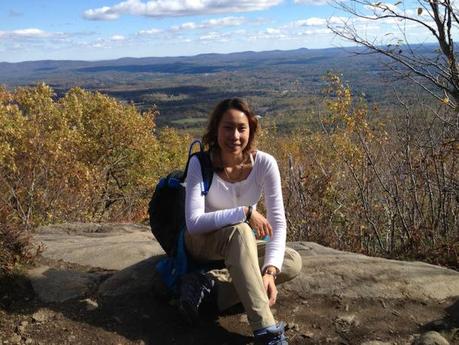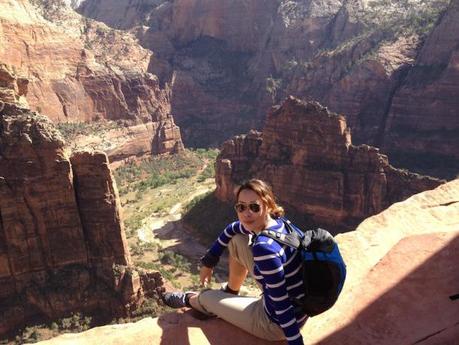
Note: I wrote this after hiking in the US last year and reading how a fit girl (who finished the Boston Marathon) died while hiking in the Grand Canyon from starvation . Although I wasn’t doing 2-3day treks like hers, these are some tips written for anyone who’s new to hiking.
//
Although the National Parks in the United States are well-maintained, with amenities like flush toilets and water points close to trailheads, their trails can stretch for over 15 miles, giving you the option for overnight hikes and full day hikes.
For the beginner hikers, here’s what you need to be prepared:
1. Know your physical capabilities
On the map, a 5 mile hike may seem easy. Oh, I run 5 miles easily, you may say, but when you step onto many trails, 5 miles isn’t on flat ground, there may be drastic elevation changes and 5 miles will take far longer than you initially thought it would be. Read the park guide, and believe the approximate time they tell you it will take. In fact, factor in 20% more time for photo opportunities and breaks.
2. Water is your best friend
Yes, just like the advice given in The Hunger Games, carrying water is essential for all hikes. Granted, you could get away without carrying a bottle for a 1mile hike, but make sure to hydrate adequately before.
A hydration pack is your best bet for moderate to difficult hikes, so it will free up your hands while you climb or are holding hiking sticks, while staying close to your body with no risk of bottles tumbling down cliff edges.
If you prefer traditional bottles, use a lumbar pack to secure them to your waist, so you won’t be begging your fellow hikers to carry the bottle for you.
We suggest a minimum of 2-3 litres of water for a 4-5 mile hike, and 700 mls for less than 2 miles.
3. Food ain’t just for picnics
The idea of having a picnic on the summit is a sweet idea and all, but the importance of food goes beyond dining with a view. Unless you had eaten just before starting a hike ( which we do not suggest you do to avoid throwing up), your body will need fuel as you are hiking.
Many people think they are not hungry while they are hiking, even if their last meal was 4-5 hours ago. Hunger also causes you to fatigue much faster, and by the time you wait till you “feel” hungry to eat, it would be late, since the body requires some time to break down the food for fuel.
4. The right shoes make a big difference
Slippery slopes, loose pebbles, steep inclines and declines, the right shoes can save your life. Or at least your ankles. Wear proper hiking shoes or boots, and please, no sandals. Lacerating your feet on shards is not worth it for the airy feeling. Save them for the beach.
We’ve seen Vibram users who love the grip and barefoot feeling the shoes give, but use them only if you’re confident of climbing in them, ‘cos one of our dear friends was limping after using it on a stony path.
5. Take your time
Many of us love a challenge, that’s why we push our limits while hiking, taking the risk of falls, injuries or even -gulp- death. Minimising these physical risks by not rushing through the trail, resting when you’re tired, descending with care, and making sure you have a sure footing. Trying to climb out of a trail with a broken leg is not going to be good.
Start early so you have enough daylight hours to finish the hike.
And of course, taking your time to enjoy the sights and sounds around you is all part of the great hike!


